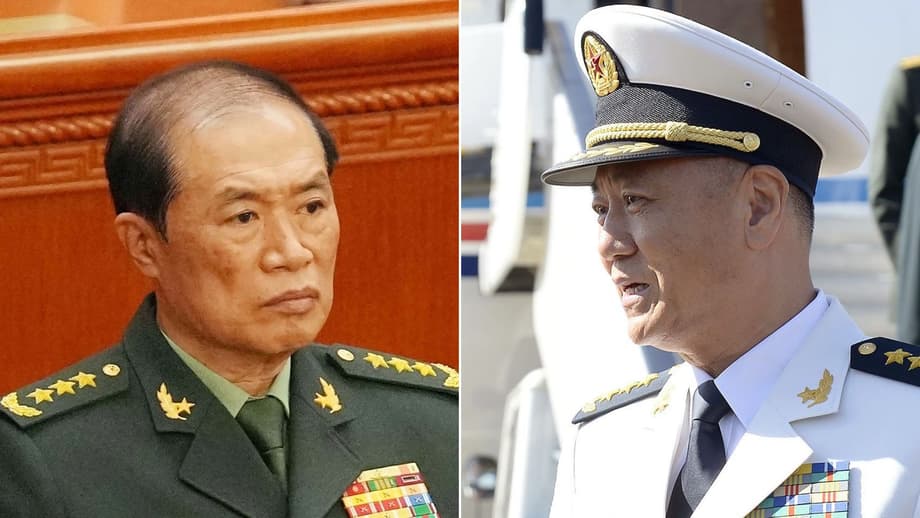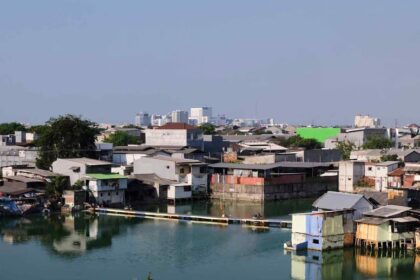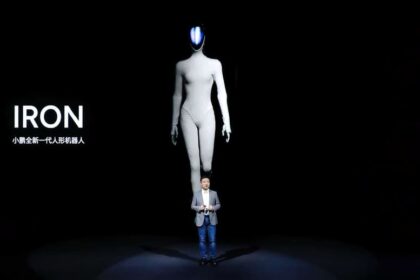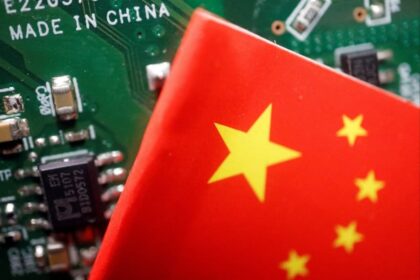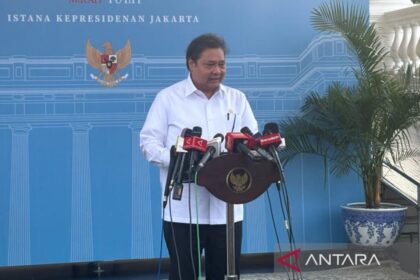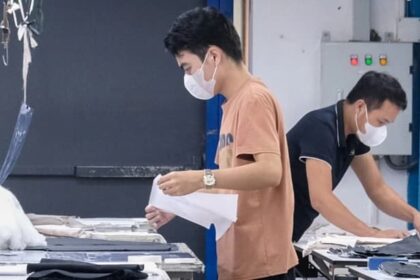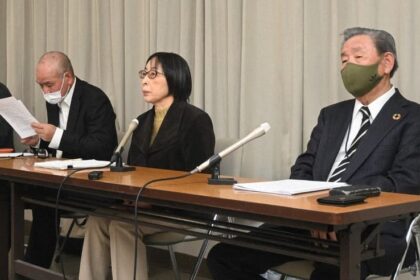Why this purge matters now
China expelled its second highest ranking general He Weidong and former political chief Admiral Miao Hua, along with seven other senior officers, on suspicion of serious corruption. The Ministry of National Defense announced that all nine have been removed from the Communist Party and from their military posts, with cases transferred to military prosecutors for potential criminal charges. It is the first time since the Cultural Revolution that a sitting vice chair of the Central Military Commission, the party body that commands the armed forces, has been taken down. He also held a seat on the 24 member Politburo, which places this move among the most consequential leadership changes of the Xi era. The timing just days before a key party meeting points to an effort to reset the top ranks quickly.
Authorities said the offenses were grave, involved extremely large sums of money, and caused highly harmful consequences. The action was celebrated by officials as a major gain for the anti corruption drive in the People’s Liberation Army (PLA). The breadth of posts involved, from joint operations to political work, the rocket force and the armed police, signals a campaign that reaches across core levers of military power.
Why the timing matters
The expulsions arrive ahead of the Fourth Plenum of the Communist Party Central Committee in Beijing. That gathering typically handles personnel and policy, and it provides a venue to fill vacant seats on the Central Military Commission. He had not been seen in public since March, a sign often read inside China’s opaque system as a prelude to formal punishment. The commission has operated with fewer than usual members since early 2025, and the shake up positions Xi Jinping to restaff the top of the chain of command.
Who was removed
The announcement named nine senior figures across multiple arms of the security apparatus. Their last known posts indicate the scope of the clear out.
- He Weidong, vice chair of the Central Military Commission and Politburo member, previously commander of the Eastern Theater Command
- Miao Hua, director of the CMC Political Work Department and a senior admiral from the PLA Navy
- He Hongjun, executive deputy director in the CMC Political Work Department
- Wang Xiubin, executive deputy director in the CMC Joint Operations Command Center
- Lin Xiangyang, former commander of the Eastern Theater Command
- Qin Shutong, political commissar of the PLA Army
- Yuan Huazhi, political commissar of the PLA Navy
- Wang Houbin, commander of the PLA Rocket Force
- Wang Chunning, former commander of the People’s Armed Police
Several had been absent from public events for months, a recurring pattern in recent purges. Eight of the nine were also members of the party’s Central Committee, so their expulsion opens seats that can be filled at the upcoming meeting.
What Beijing says and the legal process
The Defense Ministry described the cases as extremely serious and said the punishments represent a major success for the party’s anti corruption campaign. The ministry added that the files have been sent to military procuratorates, the special prosecutors who handle crimes inside the armed forces. That step is a standard pathway toward formal indictment in China’s system, where party discipline cases often precede criminal charges.
Ministry spokesperson Zhang Xiaogang framed the action as a clear signal that graft will be rooted out from the ranks. After outlining the party’s stance, he stressed that the move aims to strengthen discipline and cohesion in the military.
The punishments underscore the clear stance that there is absolutely no place for corrupt elements to hide within the military.
The PLA’s flagship newspaper used unusually sharp language to define the breach as a challenge to party control over the gun. In an editorial focused on loyalty to the party and unity in the ranks, it accused the nine of betraying core principles and moral standards.
They were disloyal and lost their chastity, a total collapse of their beliefs as party members.
Such rhetoric underscores that this campaign is being fought on two fronts, both legal and political. The legal track runs through military prosecutors and courts. The political track stresses absolute party leadership over the armed forces, a core tenet in Xi’s vision for a PLA that is disciplined, loyal, and ready to fight.
Xi’s consolidation and the Central Military Commission
The Central Military Commission is the nerve center of China’s armed forces. Xi Jinping chairs it. He Weidong was one of two vice chairs and, by protocol and influence, ranked directly behind Xi and veteran general Zhang Youxia. With He out and Miao already removed from the commission earlier this year, Xi is positioned to refill seats and recalibrate portfolios at the plenum. Senior figures such as Zhang Youxia, discipline chief Zhang Shengmin, and chief of the Joint Staff Department Liu Zhenli remain central to day to day management of the force.
He’s rise reflected Xi’s strong focus on Taiwan and joint operations. As Eastern Theater commander, He oversaw forces facing the Taiwan Strait. In 2022 he was vaulted directly into the CMC vice chair role and into the Politburo, bypassing the usual step of first serving a full term on the Central Committee. Analysts say the new vacancies give Xi another opportunity to elevate officers he trusts in critical roles handling operations, procurement, and political work.
Wen Ti Sung, a researcher of Chinese politics, said the headline change reinforces Xi’s drive to tighten control over the top brass and refresh the leadership bench at a sensitive moment.
Xi is cleaning house for sure. The formal removal of He and Miao means he will get to appoint new members of the Central Military Commission at the plenum.
The broader context is a multi year effort to reshape the PLA into a force geared for modern joint warfare. That includes reorganizing theater commands, slimming bloated headquarters units, and cracking down on graft that undermines training and readiness. Who fills the vacant CMC seats will influence priorities from promotions to procurement in the coming years.
How the purge could affect military readiness
This sweep touches sensitive nodes of the force, including political work, joint operations, the rocket force, and the armed police. Supporters of the purge argue that cleaning out corrupt networks should improve discipline and efficiency. Critics caution that repeated leadership churn and the exposure of procurement abuses can slow decision making and inject caution into a command culture that needs initiative in fast moving scenarios.
Procurement and equipment concerns
In recent years investigations have focused on equipment development and the rocket force, which manages both conventional and nuclear missiles. Two former defense ministers, Li Shangfu and Wei Fenghe, were expelled over corruption tied in part to procurement. The rocket force’s leadership was replaced in 2023, and one of those replacements, Admiral Wang Houbin, is now among the expelled. Corruption in defense industries and procurement chains, according to defense scholars, can incentivize concealment of defects, inflate performance claims, or reroute funds away from maintenance and training, all of which erode readiness.
Neil Thomas, a specialist in Chinese politics, argues the campaign delivers control at a cost.
The system gets cleaner and more obedient, but also more cautious and at times more brittle.
Leadership turnover and deterrence
Frequent top level changes can slow doctrine development, delay major exercises, and make mid level commanders hesitant to take initiative. Beijing’s response is that discipline builds cohesion. Officials insist that rooting out rot improves unity of command and, over time, combat effectiveness. The 2025 threat assessment by the U.S. Defense Intelligence Agency describes China’s military as modernizing across cyber, space, and missile domains, which underscores why leadership stability and reliable procurement systems matter as China tries to integrate new technology into training and operations.
Taiwan and regional security
He Weidong’s career tracks closely with China’s focus on Taiwan. As Eastern Theater commander, he was credited by U.S. defense officials with helping to plan and oversee the large live fire drills that began after the 2022 visit to Taipei by then U.S. House Speaker Nancy Pelosi. Those drills simulated blockades and strikes, and they highlighted how central the Eastern Theater would be in any conflict scenario. He’s ouster removes a commander who combined Xi’s trust with operational experience on that front.
Miao Hua’s portfolio as CMC political work chief touched ideology, personnel loyalty, and oversight across units, including the coast guard. His removal intersects with Xi’s emphasis on party control inside formations that operate in the Taiwan Strait and the South China Sea, where enforcement, gray zone tactics, and messaging in contested waters require tight political management.
Military to military communication between China and the United States has been uneven in recent years. Fewer senior level exchanges increase the risk of miscalculation in crowded air and sea lanes. A leadership shake up on the Chinese side can complicate counterpart mapping for foreign militaries, since roles and reporting lines shift in the short term. U.S. officials continue to describe China as the top pacing challenge, which keeps both sides focused on crisis management and deterrence even as Washington juggles other global priorities.
Patterns of disappearances and personnel churn
Under Xi, the PLA has been reshaped while undergoing recurring cleanups. The removal of former defense ministers Li Shangfu and Wei Fenghe, the replacement of rocket force leadership, and purges among aerospace and defense industry executives marked a new phase of scrutiny. Civilian elites have not been immune. The former foreign minister, Qin Gang, disappeared from public view before his removal in 2023.
In this environment, absences from signature state events are read as early indicators that an official is under investigation. During Xi’s current term, more than a dozen senior officers he promoted have been investigated or gone missing from public view, a pattern without precedent in the reform era. The method of announcing removals often follows a familiar arc, a prolonged absence, muted official references, then an abrupt notice of expulsion and a referral to prosecutors.
Despite the churn at the top, the PLA has pressed ahead with fleet building, missile fielding, and infrastructure upgrades. The party run legislature approved a 7.2 percent increase to the official defense budget this year, to roughly 246 billion U.S. dollars. Foreign assessments contend the true figure is higher once off budget items are included. The combination of investment and discipline campaigns reflects a dual strategy, buy capability while trying to police the system that delivers it.
What comes next at the Fourth Plenum
The Central Committee convenes in Beijing early in the week. Personnel changes are on the agenda. Expelling eight Central Committee members among the nine purged officers clears the way for new appointments to the party’s senior bodies, including the Central Military Commission. Xi now has an opening to elevate trusted commanders and political officers to steer procurement, joint operations, and cadre management.
Potential candidates are likely to come from theater commands, the Joint Staff Department, and political work systems across the services. Xi has not signaled a successor and tends to advance officers with loyalty credentials and experience in joint training. The next round of picks will shape the PLA’s operational tempo and the tone of civil military relations into the late 2020s.
The wider test is whether new leaders can address the causes of the recent scandals while sustaining the pace of modernization. Moving cases into military courts, tightening audit trails in procurement, and restoring predictability in command chains will define success for Beijing’s narrative that cleaning up the ranks strengthens, rather than weakens, the force.
Key Points
- China expelled nine senior officers, including CMC vice chair He Weidong and former political work chief Admiral Miao Hua, on corruption allegations
- He is the first sitting CMC vice chair removed since the Cultural Revolution, and he also held a Politburo seat
- The Defense Ministry said the cases were referred to military prosecutors and described the offenses as extremely serious
- PLA Daily framed the case as disloyalty to the party, stressing unity and party control over the gun
- The purge lands days before the Fourth Plenum, positioning Xi to restaff the Central Military Commission
- Analysts are split on the effect on readiness, some warn of a chilling effect while officials say discipline will improve cohesion
- He’s removal touches Taiwan contingencies, given his role as former Eastern Theater commander behind large 2022 drills
- The move continues a pattern of high profile disappearances and purges that also felled former defense ministers and rocket force leaders
- China’s military modernization continues, with the official defense budget up 7.2 percent to about 246 billion U.S. dollars this year


